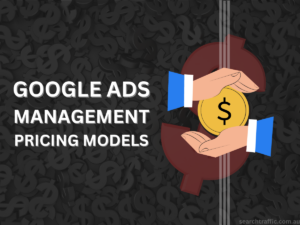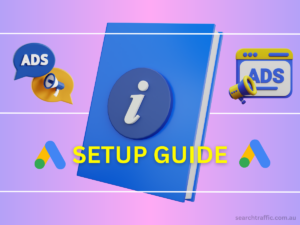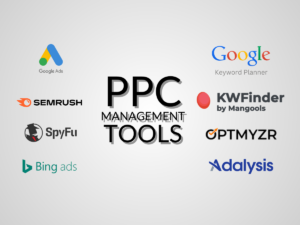Table of Contents
Are you considering starting a small business in Australia?
The good news is, Australia’s small business landscape is thriving, with over 2.3 million small businesses in operation across the country.
This is a testament to the potential for success and innovation that the Australian market offers.
However, starting a small business can be a daunting task, and there are many factors to consider before taking the plunge.
In this blog post, we’ll provide you with a comprehensive guide on everything you need to know to start a successful small business in Australia.
Ideation and Market Research
Before investing your time and money into a small business, it’s important to have a business idea that is both viable and unique in the market.
Identifying a Problem or a Gap
Tips for brainstorming and validating business ideas include identifying a problem or gap in the market that you can solve, considering your passions and skills, and researching industry trends and competition.
Market Research- Is there demand?
Once you have a business concept in mind, conducting market research is crucial for understanding your target market and ensuring there is a demand for your product or service.
This includes:
- analysing your competition and
- target customer demographics,
- researching consumer behaviour and trends,
- and identifying any potential market risks.
Lastly, it’s important to identify your niche and carve out a unique space in the market.
This could include finding a gap in existing offerings, specialising in a certain product or service, or targeting an underserved customer group.
Example Case Study:
Imagine you’re planning to open a boutique coffee shop. Your market research might reveal a growing trend for specialty coffee in your area but a lack of offerings with organic or sustainably sourced beans. This gap could be the unique angle your business needs.
Business Planning
Crafting a business plan is a critical step in the small business startup process.
Key components of a successful business plan include
- an executive summary,
- company overview,
- market analysis,
- product or service description,
- marketing and sales strategy,
- financial projections, and future goals.
Setting realistic and measurable goals is also crucial for driving business success and growth.
This includes identifying short-term and long-term objectives, creating an action plan to achieve those goals, and continuously measuring progress and adjusting strategy accordingly.
Financial planning is another important aspect to consider when starting a small business. This includes creating a budget, forecasting revenue and expenses, and managing startup costs.
Legal Considerations and Registrations
Choosing the right business structure is important for legal and tax purposes, with options including sole trader, partnership, company, and more.
Registering your business name, ABN (Australian Business Number), and other legal requirements are also necessary to ensure your business is operating within the law.
Understanding tax obligations is also necessary for small business owners in Australia.
This includes registering for GST (Goods and Services Tax), understanding PAYG withholding, and filing annual tax returns.
Funding Your Business
Funding your small business is an important consideration, with options including self-funding, loans, investors, and government or private grants.
Creating a compelling pitch to attract investors, navigating the funding application process, and managing cash flow are all important steps to consider.
Setting Up Operations for Your Business
Once your business is operational, establishing strong operational systems is crucial for ensuring smooth day-to-day processes. This involves several key steps:
Setting Up a Business Bank Account:
Importance: Separating personal and business finances is essential for clear accounting and tax reporting.
Choosing a Bank: Look for a bank offering features beneficial to small businesses, such as low transaction fees, online banking, and access to small business loans.
Account Setup: Gather necessary documentation, including business registration details and identification, to set up your account.
Creating an Effective Inventory System:
Importance: A good inventory system is vital for tracking stock levels, managing orders, and forecasting demand.
Implementation: Utilise inventory management software to streamline this process, helping to avoid overstocking or stock shortages.
These steps not only enhance the efficiency of your business operations but also lay a solid foundation for sustainable growth and success. As your business grows, also consider the importance of hiring skilled employees and developing a strong marketing strategy to expand your market presence.
Marketing Your Business Online

In today’s digital age, marketing your business online is not just an option but a necessity.
Whether you’re launching a startup or looking to expand your existing business, a robust online presence is crucial.
This encompasses a variety of strategies, from basic steps like listing your business on Google Maps to more comprehensive approaches like developing a user-friendly website.
Marketing Strategy
Your marketing strategy should aim to attract, engage, and retain customers. This includes choosing the right marketing channels for your business.
You can consider:
- social media,
- email marketing,
- SEO,
- content marketing,
- or paid advertising.
Depending on your business type and target audience, your digital marketing strategy could involve a mix of these elements.
For instance, a B2B company might focus more on LinkedIn networking and industry-specific content, while a B2C retailer could benefit from visually-rich Instagram posts and online customer reviews.
Digital Presence and SEO
Having a strong online presence is key in today’s digital age. This includes having a user-friendly website and maintaining active profiles on social media platforms where your target customers spend their time.
Effective digital marketing also involves Search Engine Optimisation (SEO) to improve your website’s visibility in search engine results. This requires understanding and leveraging keywords relevant to your business, creating quality content, and ensuring your website is mobile-friendly.
Customer Engagement
Engaging with your customers is crucial. This can be done through social media interactions, email newsletters, or hosting events. Remember, customer satisfaction leads to customer loyalty, which can often lead to referrals.
Performance Tracking
Finally, regularly track and analyse your marketing efforts to understand what’s working and what needs improvement. Consider using tools like Google Analytics or social media analytics to measure your performance.
Remember to always stay flexible and adjust your strategy as needed based on your results.
Launching Your Business
Launching a small business is an exciting milestone. Preparation is key, so ensure you have a final checklist of tasks to complete before opening your doors, including finalising products or services, setting up your storefront or website, and promoting your launch.
Checklist for Launching Your Business:
- Finalise your product or service offerings.
- Set up your physical or digital storefront.
- Plan a marketing campaign for your launch.
Consider hosting a grand opening event, whether in-person or online, to generate buzz and attract your first customers. This could include special promotions, giveaways, or a celebration with your community.
Post-launch, it’s crucial to monitor feedback and metrics to understand how your business is performing. Customer reviews can provide valuable insights to improve your services, and tracking sales, website traffic, and social media engagement can help you measure your success and adapt your strategy as needed.
Remember, launching your business is just the beginning of your entrepreneurial journey, and continuous learning and adaptation are key to long-term success.
Growing and Scaling Your Business

Once your business is established, it’s important to continue growing and scaling to maintain success.
This could include expanding your product or service offerings, increasing marketing efforts with Google Ads, opening new locations, or hiring additional staff.
It’s also beneficial to stay informed about industry trends, competition, and consumer preferences to adapt your business accordingly.
Should I Start A Small Business? Questions to ask before leaping.
Starting a small business can be a rewarding experience, but it also comes with its challenges and risks. Before taking the plunge, here are some questions to ask yourself to ensure you’re ready for the journey ahead:
- Do I have a strong passion and drive for this business?
- Am I prepared to face potential failures and setbacks?
- Do I have the necessary skills and knowledge to run a business?
- Do I have a solid business plan and understanding of my market?
- Am I financially prepared for the initial investment and ongoing expenses?
Answering these questions honestly can help you determine if starting a small business is the right path for you.
Remember, entrepreneurship requires dedication, hard work, and perseverance, but with careful planning and determination, it can lead to success.
What support is available for new businesses in Australia?
Australia offers various resources and support for new businesses, including:
- Small Business Development Corporation (SBDC): provides free advice, workshops, and resources for small business owners.
- Australian Taxation Office (ATO): offers guidance on tax obligations and deductions for small businesses.
- Industry-specific associations: many industries have their own associations that offer networking opportunities, resources, and support for new businesses.
- Local chambers of commerce or business networks: these organisations provide networking and support for local businesses.
- Getting advice from small business SEO consultants who can help with building organic traffic to your website
Remember, you don’t have to do it all alone, and seeking support can help you navigate the challenges of entrepreneurship.
Conclusion
Starting a small business in Australia may seem daunting, but with the right planning and preparation, it’s a viable and exciting option for many entrepreneurs.
From ideation and market research to marketing your business online, there are many important factors to consider when starting a small business.
Hopefully, this guide has provided you with valuable information to help you start your own successful small business in Australia.






